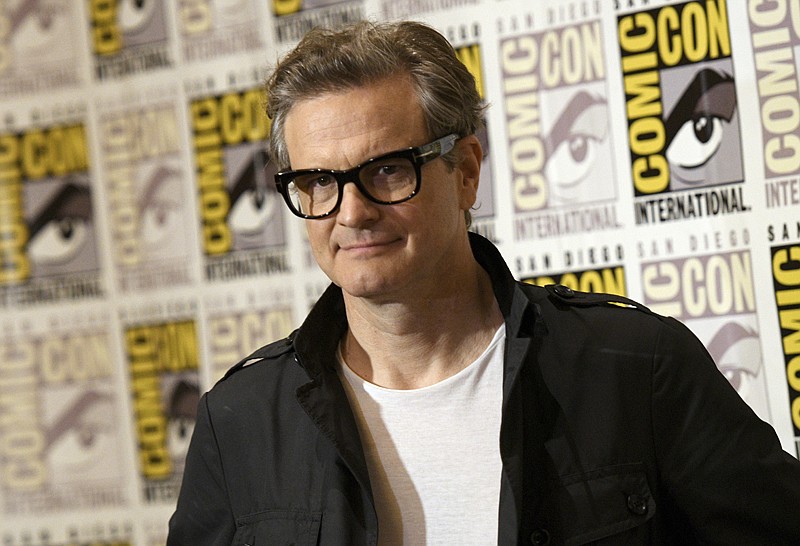Aromatic top notes of hot dogs and cooling nachos waft through the air, mingling with the distinct bouquet of 6,500 amped-up human bodies. Many have forgone showers and sleep to camp out overnight in the humid summer heat for the chance to be here, to cram themselves, elbow to elbow, into one of the seemingly endless rows of unforgiving folding chairs.
Year after year, this is the scene that plays out inside this modern geek cathedral-the superfans come to worship spandexed gods and wonder women, TV heroes, monsters and aliens while the people who created those characters, or paid for them, watch and listen and pray for buzzy pleasures to be transformed into profit.
This is Hall H in the San Diego Convention Center during Comic-Con International, the most important room in Hollywood.
For those with a movie franchise or new television series of a certain type, mounting the stage at Hall H is like scaling Mt. Everest (with, given the number of screaming fans, just about the same oxygen levels). Find yourself on the elevated dais and the commercial potential of your project multiplies exponentially. An appearance in Hall H may not guarantee box-office success, but it sure helps.
"Iron Man" debuted here a decade ago, ushering in a new era of billion-dollar superhero franchise obsession. The stars of "Twilight" became reluctant overnight megastars on this hallowed stage where Steven Spielberg, Francis Ford Coppola and Guillermo del Toro have trod, courting a genre geek demographic that has come in from the fringes to take over the world.
Year after year, Batman, Superman, "Star Wars" and most of Hollywood's biggest properties have come to stoke the flames of fan mania, sometimes to extremes. Once, a man in a free "Harry Potter" shirt stabbed a fellow attendee near the eye with a pen in a dispute over personal space after getting a sneak peek at the fourth "Resident Evil" movie.
Lined with jumbo screens, Hall H is the 65,000-square-foot state-of-the-art centerpiece of the almost 50-year-old pop culture confab, which now draws more than 130,000 voracious sci-fi, fantasy, comic book, television and film fans each year.
It is the ultimate marketing destination for any film or television series remotely connected to the comic-book community, and while it's great to land a panel in Ballroom 20 (capacity: 4,800) or the Indigo ballroom (2,663) or even Room 6BCF (2,160), Hall H is the address for success.
In 2007, for example, not many predicted that the star of "Swingers" and director of "Elf" and "Zathura" would deliver a game-changer about an obscure comic-book superhero in a flying suit. But Jon Favreau knew he had a hit when the surprise "Iron Man" sizzle reel he showed in Hall H played to the rafters, kick-starting the fan interest that turned Robert Downey Jr. into a mega-star and launched the Marvel Cinematic Universe.
"Kingsman" helmer Matthew Vaughn had his own career-changing moment when he took the same stage in 2009 with his indie superhero movie "Kick-Ass," moments after James Cameron had screened 25 minutes of footage from his 3-D space epic "Avatar."
"I just thought, 'Oh, my gosh, how are we going to pull this one off?' Luckily the comic fans were so vocal and supportive that we literally got a distribution deal the next day because of their reaction at Comic-Con," Vaughn said. "I'm eternally grateful."
Longer than the Hall of Mirrors at Versailles, Hall H has played host to as many, if not more, memorable moments in history. No peace treaties have been signed within its walls, but the entire Avengers lineup did assemble for the first time here in 2010, two years after Robert Pattinson walked out onstage, became a star and discovered exactly why fans of his new sparkly vampire YA franchise were dubbed "Twihards."
"It's like the sound you hear at the gates of hell," as the then-22-year-old described it to The Times. "When you can't see where it's coming from, it's the most terrifying sound-6,000 people screaming."
Anchoring one corner of the 2.6 million-square-foot city-owned convention center, Hall H has seen and helped the entertainment industry change, its significance fueled by the Internet, the explosion of geek culture, fanboy-baiting blogs and social media. Once reserved for blockbuster films, its stage is increasingly filled with television programming, which has blossomed for many of the same reasons.
Ever since ABC's "Lost" and NBC's "Heroes" graduated from Ballroom 20 in 2009, television has launched a campaign on Hall H with fan favorites like HBO's "Game of Thrones" and AMC's "The Walking Dead." This week, streaming giant Netflix will make its Hall H debut with the hit series "Stranger Things," the original movie "Bright" and the manga adaptation "Death Note."
The very existence of Hall H is proof of the power shift in popular culture. Founded in 1970 as a one-day comic book convention, Comic-Con was the antithesis of arena-sized popularity. But by 1991, growing crowds pushed it into the newly constructed San Diego Convention Center. "The tent just got wider and wider," recalled veteran genre marketing consultant Jeff Walker. "Because the fans kept coming."

